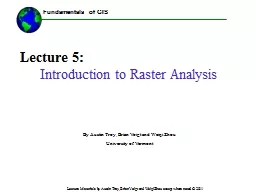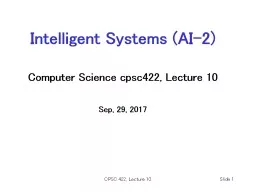PPT-Lecture Nine
Author : alexa-scheidler | Published Date : 2017-09-29
The Zombie Argument 人 皮囊论证 The most famous philosopher who put forward the zombie argument David John Chalmers born 20 April 1966 is an Australian
Presentation Embed Code
Download Presentation
Download Presentation The PPT/PDF document "Lecture Nine" is the property of its rightful owner. Permission is granted to download and print the materials on this website for personal, non-commercial use only, and to display it on your personal computer provided you do not modify the materials and that you retain all copyright notices contained in the materials. By downloading content from our website, you accept the terms of this agreement.
Lecture Nine: Transcript
Download Rules Of Document
"Lecture Nine"The content belongs to its owner. You may download and print it for personal use, without modification, and keep all copyright notices. By downloading, you agree to these terms.
Related Documents














